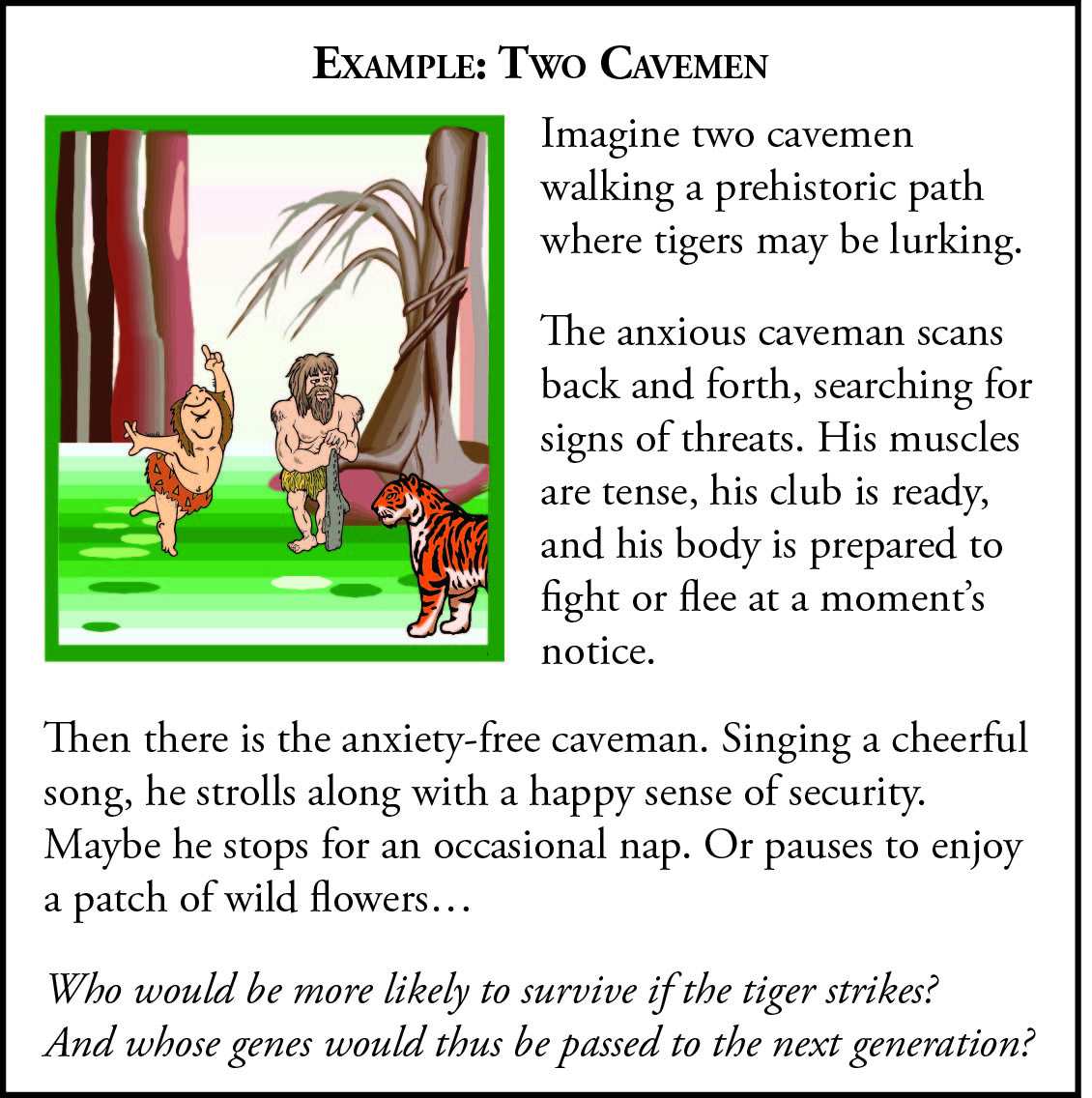Why Does Anxiety Exist in the First Place?
All of us experience it. Half of us struggle with it. A quarter of us suffer from one of its disorders. So why does the feeling called “anxiety” exist in the world in the first place?
To answer this question, we must review one of science’s most important ideas: the theory of evolution. “Nothing in biology makes sense,” renowned biologist Dobzhansky observed, “except in the light of evolution.” The same comment could be made in reference to anxiety. Little about it makes any sense unless we grasp how it came to be here.
As an evolution refresher, picture two monkeys: one with a tail and one without one. Both monkeys do quite well during times of peace and prosperity. But when there are too many predators or too little food, the former has an advantage.
Thanks to his bonus appendage, the tailed monkey can hang from trees to collect bananas and stay out of trouble. Meanwhile, his tailless relative is stuck on the ground, picking up scraps and dodging tigers. This means the tailed monkey would be more likely to survive and, if his romantic efforts were successful, produce baby monkeys. The result? More monkeys with tails and fewer without them.
Anxiety emerged through a similar process. It evolved because it helped us survive. It is here because it helped us be here. It exists because it helped our species exist in the world in the first place.
Now, many of us have wished we would never feel anxious again. But what would happen if this wish were granted? Might we be a little less cautious crossing the street? A little less vigilant about our health? A little more inclined to blast down the highway without a seatbelt, singing, “I can’t drive 55”?
And how might these behaviors impact our life expectancy?
Anxiety is “adaptive,” to make a long story short, because it helps us defend against threats. Because it promoted survival in the course of our natural history, it was selected and maintained by evolution. The cavemen below illustrate the point.
Dylan M. Kollman, PhD
dkollman@realanxietysolutions.com








Fabulous – it may lead me to buy the book!